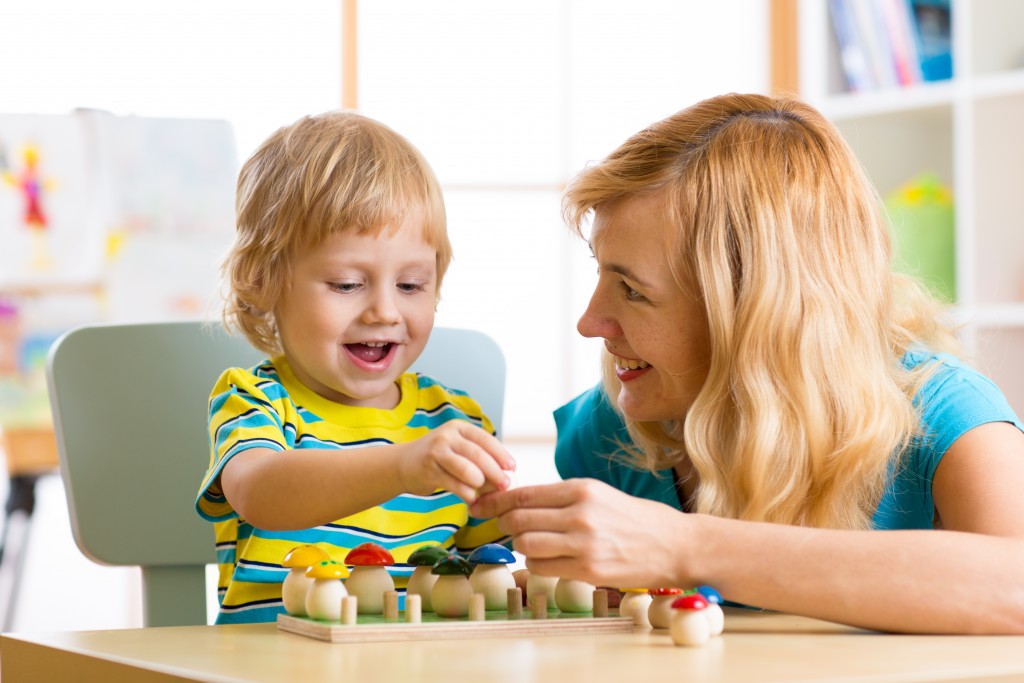Most working parents face a similar dilemma. How can they take great care of their kids without putting their jobs at risk? These days, families rely on more than a single breadwinner, which means they need to decide between parental care, child care, nannies, and preschool. Most parents choose one option that will ensure the safety of their kids. It is also worth investing in a child’s education at the earlier possible date when in reality.
Early childhood education can start as early as three years of age and is often offered by daycares and preschools. Some people see this as an expensive way to have someone watch over their kids when, in reality, this can serve as a great foundation for tomorrow’s future. While early childhood education has its own set of pros and cons, many experts still recommend investing in kid’s early education and care.
What Does Early Childhood Education Have to Offer?
Kids can enjoy numerous benefits from early education. Studies show that early learning improves many areas, including a child’s cognitive development, their ability to learn specific subjects, self-regulation, emotional security, health, and nutrition, as well as their social skills. These are some reasons why early childhood education matters.
- Develop a Good Routine
Kids thrive better when they have a structured environment they can follow. They will know what to expect; they are likely to cooperate and start taking charge of their daily activities. This, in turn, will help them develop good habits, making family life a lot less stressful.
- Learn How to Be Emotionally Resilient
Being with other people, especially kids their age, helps kids develop the necessary social skills to build great relationships. Kids will learn how to be attentive to other’s feelings and, in turn, develop a sense of sympathy and empathy. This helps them make friends easily, communicate their thoughts, feelings, and ideas well, and build relationships that will shape their future selves.
- Inspire the Love for Continuous Learning
Early education does more than help kids learn how to read, write, and count early. Studies show that kids who enjoy high-quality at such a young age develop a love of lifelong learning and are more likely to stay employed and enjoy success in the future.
Are There Any Drawbacks to Early Childhood Education?
There are little-known disadvantages when it comes to giving kids access to early learning. For one, many institutions use different technologies to teach little kids. While technology can help make kids more excited about learning, it can also discourage creativity at some point.
There are also instances when kids are becoming even more disconnected due to technology. More families are already living an alone-together life. The last thing we want is for kids to rely heavily on technology and be with other kids without really interacting on a personal level.
Not all institutions that offer early education to kids offer quality education. Some lack the resources to teach kids effectively. Others fail to maintain an adequate student-to-teachers ratio, leading to some kids feeling left out.

Emerging Trends in Early Childhood Education
The Covid-19 pandemic caused schools to turn to technology to continuously provide quality education despite the lockdown. The economy is slowly opening, and some schools already started opening. But we can already see many parents’ reluctance to send their kids back to school due to health and safety concerns.
Aside from online learning, many trends are anticipated to dominate early childhood education. This includes the following.
- Early Learning Assessment
Kids are gauged based on their skills, interests, abilities, and the areas where they have difficulty coping. These are not meant to diagnose their strengths and weaknesses accurately. The purpose of observing, testing, and assessing kids is to help address issues kids may have, offer early intervention, and help kids better cope in the future.
- Incorporating Outdoor Learning
Natural environments allow kids to be curious, creative, be spontaneous, discover, connect, and take risks. By allowing kids to explore the great outdoors, they will develop environmental awareness and appreciate nature more. This, in turn, helps boost their learning experience.
- Increased Focus on Play-Based Learning
More institutions are dedicating time where kids can explore and play without interruption. They believe that doing so helps boost kids’ independence, confidence, and ability to connect with others and the world around them. Kids will learn how to build better relationships, regulate their behavior, and learn how to solve problems on their own.
The perks of Early childhood learning always outweigh the cons. Investing in our kids’ early learning can help them be more competitive and social and develop emotional resilience so they can grow into well-adjusted adults. A high-quality child-care setting is a must. Still, kids need to spend quality time with their family, especially their parents, to make a difference in their quality of life.

